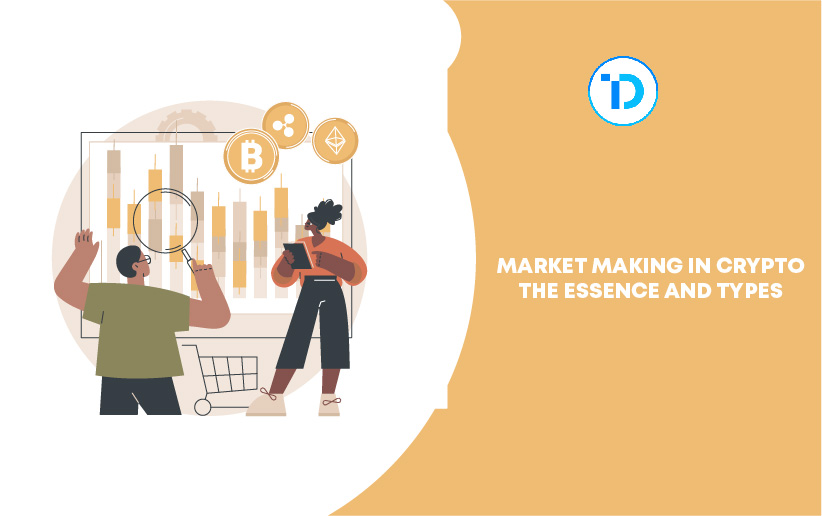Crypto market makers are traders who play an essential role in the digital asset landscape by ensuring liquidity, facilitating efficient trading, and contributing to price stability. In this article, we’ll discuss market maker services and types.
Crypto Market-Making Services
Liquidity stands as the main indicator of an efficient market. High liquidity helps reduce price volatility and contributes to fair price formation in the market. The liquidity level depends on order books – that’s where buy and sell orders are placed. The difference between the highest buying price and the lowest selling price for an asset is called spread (or bid-ask spread). Low-liquidity markets usually have a big difference in buy-sell prices, which also means low trading volume. High-liquidity markets are characterized by a tight spread, and therefore, higher trading volume.
Market markets are hired by crypto exchanges and tasked to reduce spread as much as possible while posting buy and sell prices in an order book. As a result, a market becomes efficient and attractive for traders and investors.
At the same time, a market maker’s profit consists of collected bid-ask spreads. Market makers fulfill numerous trades per day, and they are always ready to buy or sell crypto if there’s no natural counterparty for an order that emerges in the order book. Crypto exchanges charge lower fees from market makers to compensate for the risks they take when buying assets that decline in value.
Types of Crypto Market-Making
Crypto market-making services can be divided into the following types:
- Manual – involves human traders actively fulfilling buy and sell orders, making decisions based on market conditions and their expertise. This method relies on human intuition and experience, is suitable for smaller-scale operations, and has slower execution speeds compared to automated methods.
- Automated market-making (AMM) – uses computer algorithms and predefined rules to automatically execute trades, analyze market conditions, and manage order books. It is highly efficient and operates at high speeds, providing continuous liquidity, and adapting quickly to changing market conditions.
- Decentralized market making – operates on decentralized platforms and is based on smart contracts, removing the need for traditional intermediaries. This method relies on blockchain technology, allows for peer-to-peer trading, and utilizes algorithmic protocols within decentralized exchanges.
Conclusion
Cryptocurrency market making is a highly risky type of trading, where participants influx large trading volumes into the market and always stand ready to fulfill trading orders, regardless of the market conditions. Market makers make it possible for trades to be executed efficiently, quickly, and at a fair price, and contribute to overall market liquidity and stability.
Related Articles:
Top Features To Look for in a Forex Trade Copier Software
